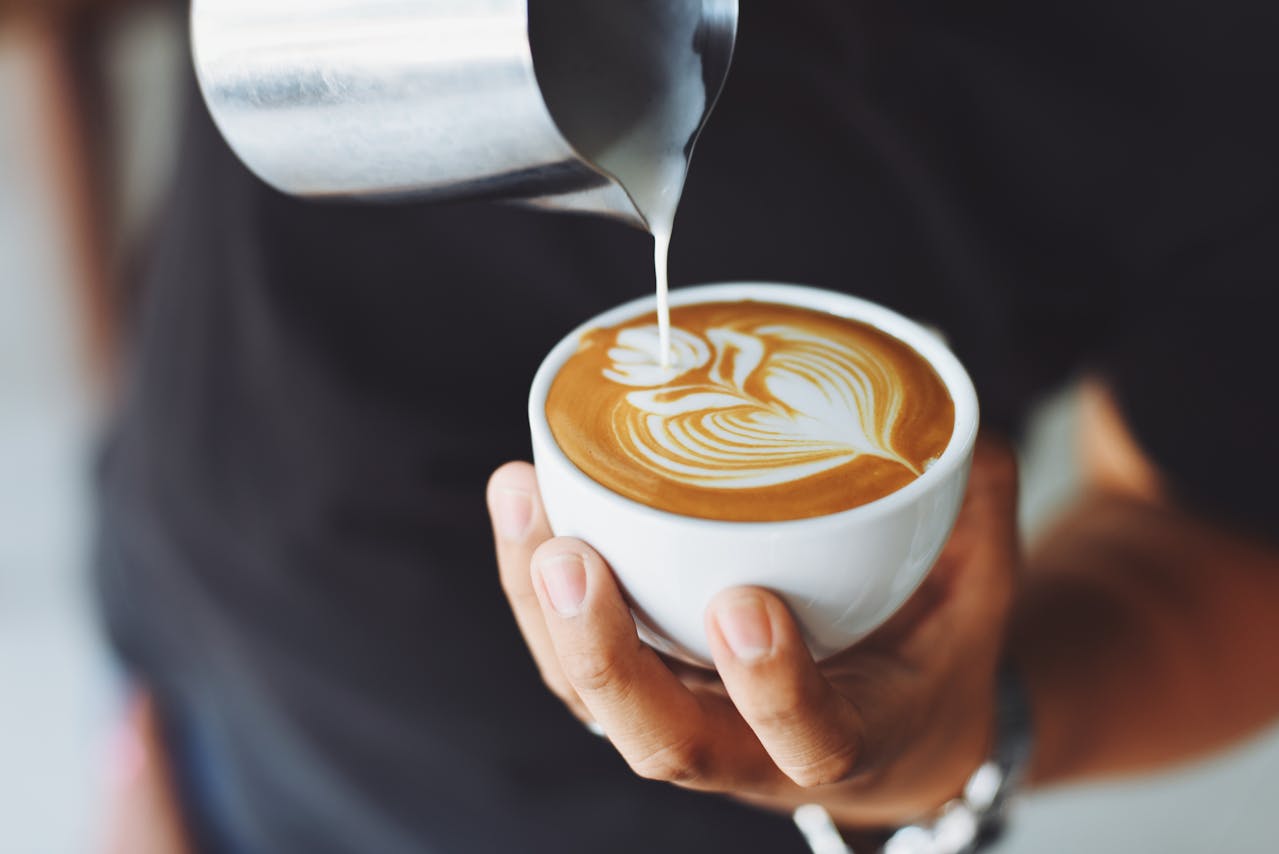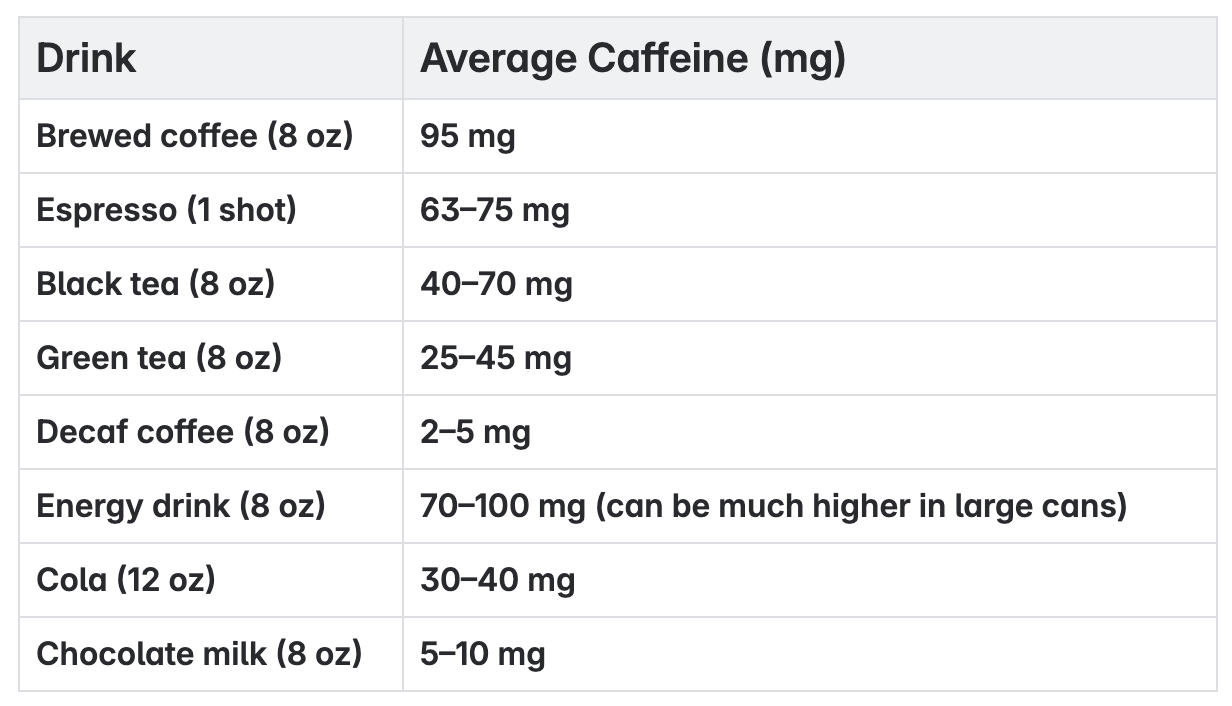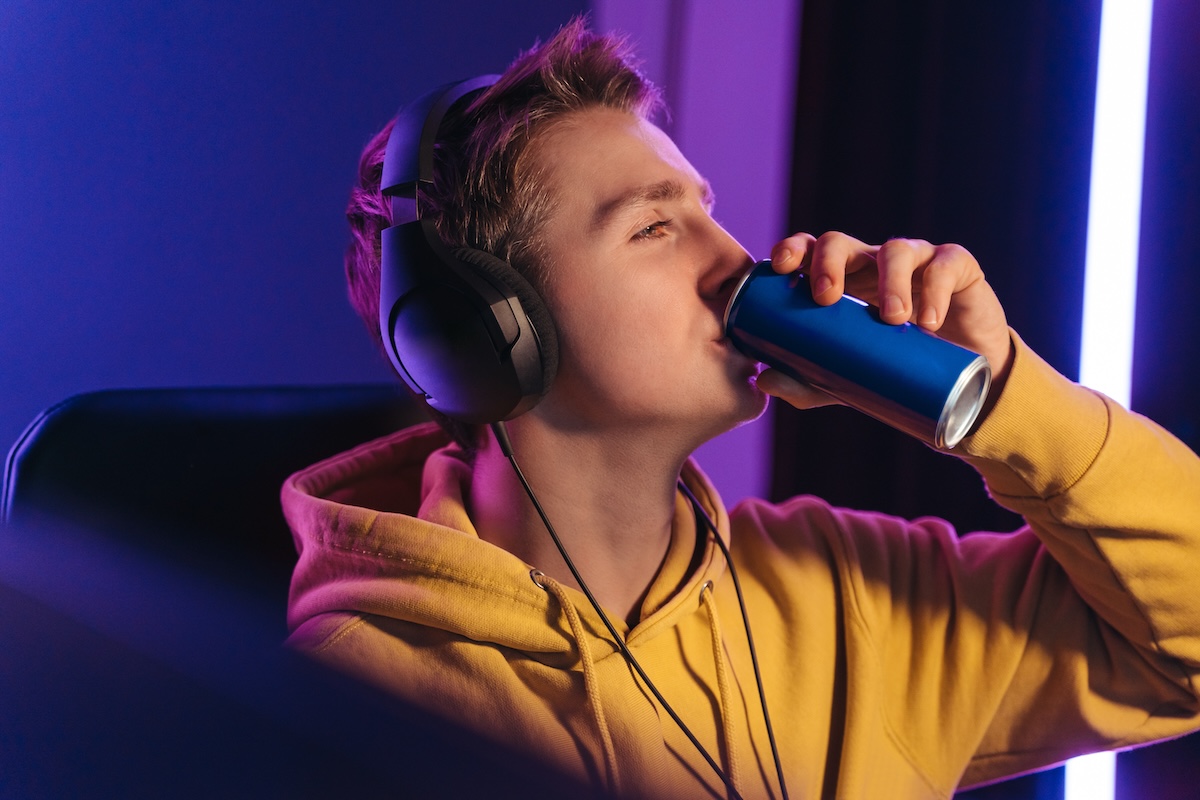If you have high blood pressure, you might be wondering:
Do I have to give up coffee? What about tea or energy drinks?
The answer isn’t all or nothing. You don’t necessarily have to quit caffeine, but it’s important to know how much is safe—and where caffeine might be hiding.

How Much Caffeine Is Safe for High Blood Pressure?
The American College of Cardiology/American Heart Association guidelines recommend limiting caffeine intake to less than 300 mg/day for people with high blood pressure, which is approximately 2–3 standard cups (~12 oz. each) of coffee (no more than 24-36 oz per day, depending on your size)-- that's 2-3 cups of coffee.
But if you have high blood pressure, many experts recommend keeping your intake lower—no more than one cup of coffee per day. Some people are more sensitive to caffeine than others, especially if they have certain health conditions or take medications that amplify its effects.
If you notice jitters, anxiety, headaches, or a spike in your blood pressure after drinking caffeine, it may be a sign to cut back—or talk with your doctor about what’s right for you.
Common Caffeine Amounts in Popular Drinks
Coffee isn’t the only source of caffeine. You’ll also find it in tea, energy drinks, soda, and even chocolate. Here’s a helpful guide to what’s in your cup:

Tip: Always check labels—caffeine levels can vary widely, especially in energy drinks and bottled teas.
So, Can You Still Enjoy Caffeine?
Yes! Most people with high blood pressure can still enjoy a moderate amount of caffeine. The key is knowing how much you’re getting and staying within a safe range. If you’re unsure, your doctor or dietitian can help you figure out what’s right for you.

Should I Check My Blood Pressure Before or After Coffee?
That depends on what you want to learn.
- Check your blood pressure before coffee to understand your resting baseline.
- Then check it again about 30 to 60 minutes after drinking to see how your body responds.
This is a helpful way to learn whether caffeine is significantly raising your blood pressure.
Takeaways
You don’t have to give up caffeine completely if you have high blood pressure—but moderation matters. One cup of coffee a day is usually safe for most people. If you’re unsure how caffeine affects you, try checking your blood pressure before and after you drink it. This simple habit can help you enjoy your favorite drinks while keeping your heart health on track.



